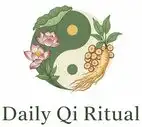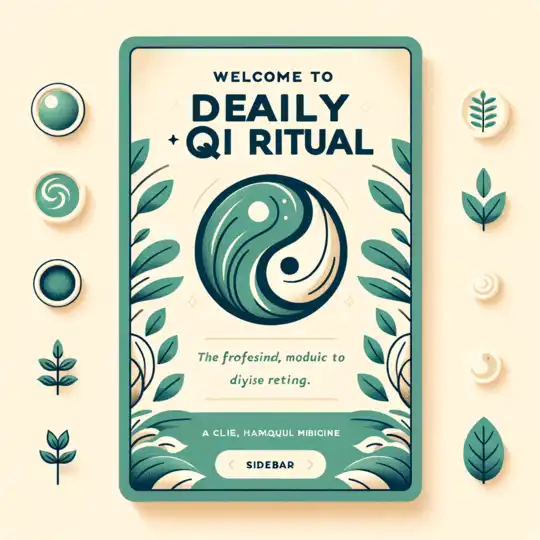How deeply are you connected to the vital energy that sustains your life? Understanding Qi, the essence of our being in Traditional Chinese Medicine, can transform your approach to health and well-being. Discover how nurturing this life force can create harmony in your life!
What You Will Learn
- Understanding Qi: Learn how Qi represents vital energy essential for maintaining physical and emotional health.
- Interconnectedness: Explore the philosophical roots of Qi in TCM, emphasizing the harmony between our bodies and the universe.
- The Balance of Yin and Yang: Discover how balancing these forces promotes optimal Qi flow and overall well-being.
- Scientific Perspectives: Understand how modern research supports the benefits of Qi practices like acupuncture and tai chi.
- Impact on Mental Health: Examine studies showing how Qi practices can reduce anxiety and improve cognitive functions.
- Utilizing Multimedia Tools: Enhance your understanding of Qi through infographics and instructional videos that clarify complex concepts.
- Holistic Health Practices: Incorporate daily rituals and holistic practices that nurture your Qi and promote balance in life.
- Connecting with Practitioners: Gain insights from TCM experts to deepen your understanding and practice of Qi.
Benefits of Qi Practices on Health Outcomes
Various studies have highlighted the positive impacts of engaging in Qi practices. Below is a summary of significant findings:
Acupuncture Benefits
Relieves chronic pain and enhances overall wellness.
Tai Chi Benefits
Improves balance and flexibility, fostering physical stability.
Mindful Breathing
Reduces stress and anxiety, creating a sense of calm.
Qigong Outcomes
Significantly improves quality of life for chronic illness sufferers.
Cognitive Function
Enhances cognitive abilities in older adults.
Stress Reduction
Lower stress hormone levels through regular practice.
Understanding Qi: The Essence of Vital Energy in Traditional Chinese Medicine
At Daily Qi Ritual, we often talk about the pivotal role of Qi in our lives. But what exactly is Qi? In Traditional Chinese Medicine (TCM), Qi represents the vital energy or life force that flows through our bodies and the universe. It is the energy that sustains us, enabling our physical, mental, and emotional functions. Think of it as the rhythm of life itself, akin to the gentle flow of a river that nourishes everything along its banks. For more insights into how to integrate these principles, consider exploring incorporating TCM into daily life.
Qi is more than just a concept; it embodies the essence of our being. When we cultivate our Qi through mindful practices, we align ourselves with nature's energy. This connection fosters a sense of **balance** and well-being. So, how can we harness this vital energy in our daily lives? Let’s explore together!
Defining Qi: Vital Energy and Life Force
Qi is often described as the energy that circulates through our bodies and influences our health. In TCM, it is essential for maintaining harmony within our physical and emotional states. When Qi flows freely, we experience vitality and resilience. If you ever felt rejuvenated after a walk in nature or found calmness through deep breathing, you’ve tapped into your Qi!
- Vitality: Qi boosts physical health, keeping us energized.
- Emotional Balance: A harmonious flow of Qi helps manage stress.
- Mental Clarity: With balanced Qi, our thoughts become clearer and more focused.
Understanding Qi is a journey! As you delve deeper into TCM, you’ll discover how this life force impacts various aspects of your existence. Isn’t it fascinating to think about what nurturing your Qi can bring to your life?
The Philosophical Background of Qi in TCM
Qi is rooted in the ancient philosophies of TCM, woven into the fabric of how we perceive health and wellness. The Chinese word for Qi, 气, captures both the essence of energy and the air we breathe, suggesting a profound connection between life and the universe. This philosophical framework emphasizes that our health is not just physical but also a reflection of our relationship with our surroundings.
At Daily Qi Ritual, I often reflect on the wisdom embedded in these teachings. Here are some key principles to consider:
- Interconnectedness: Everything in life is interrelated, from our bodies to the environment.
- Harmony: True health arises from balanced Qi, where both Yin and Yang coexist.
- Dynamic Nature: Qi is always moving and changing, just like life itself.
Embracing these principles can guide us toward a more holistic approach to our well-being. How can you integrate these insights into your life? For example, learning about mindfulness in everyday life can help you foster this connection.
The Role of Yin and Yang in Qi Balance
The balance of Yin and Yang is fundamental to the concept of Qi in TCM. These opposing forces are present in everything around us, representing night and day, cold and hot, passive and active. In terms of Qi, when these energies are balanced, we experience harmony in our body and mind.
Let’s break it down:
- Yin: Represents coolness, rest, and nourishment.
- Yang: Symbolizes warmth, activity, and energy.
- Balance: A harmonious interplay between Yin and Yang leads to optimal Qi flow.
By recognizing the interplay of these forces in our lives, we can take actionable steps to nurture our Qi. Have you noticed how your daily habits might shift the balance of Yin and Yang? Together, we can explore ways to cultivate this balance for our well-being!
Quick Summary
Here's a brief recap of the key points discussed so far:
- Definition of Qi: Qi is the vital energy that sustains our physical, mental, and emotional well-being.
- Principles of TCM: Interconnectedness, harmony, and the dynamic nature of Qi are fundamental to understanding health.
- Yin and Yang Balance: The interplay between Yin and Yang is essential for optimal Qi flow and overall wellness.
Scientific Perspectives on Qi: Bridging Tradition and Modern Healthcare
As we explore the world of Qi, it's essential to acknowledge the growing body of scientific research that seeks to understand its impact on health. Many studies have aimed to bridge the gap between traditional practices of Qi and modern healthcare. This merging of knowledge can provide us with a holistic view of how our energies affect our well-being.
One of the most compelling findings suggests that practices like acupuncture and tai chi can positively influence both physical and mental health. Researchers found that individuals who engage in these activities often report improved mood, reduced pain, and heightened relaxation. It's fascinating to see how ancient methods resonate with the newer approaches in health and wellness.
- Acupuncture has been shown to relieve chronic pain.
- Tai Chi enhances balance and flexibility.
- Mindful breathing techniques reduce stress and anxiety.
Research Findings on the Impact of Qi Practices on Wellness Outcomes
In recent years, numerous studies have examined the effects of Qi practices on various health outcomes. For instance, a growing number of clinical trials have shown that consistent practice of Qigong can significantly improve quality of life for those dealing with chronic illnesses. This evidence underlines the potential benefits of integrating Qi-enhancing exercises into our daily routines.
Moreover, researchers have documented the positive impacts on mental health too. Participants practicing Qi-related exercises often experience lower levels of anxiety and depression. This dual benefit is why I'm a firm believer in practicing Qi-focused rituals in my daily life; they truly contribute to my sense of harmony and balance! For those interested in specific treatments, understanding what to expect from acupuncture can be very beneficial.
- Enhanced physical recovery in post-operative patients.
- Improved cognitive function in older adults.
- Reduction in stress hormone levels through regular Qi practices.
Understanding Qi in the Context of Western Holistic Health
When we look at Qi through the lens of Western holistic health, we find some intriguing parallels. Western medicine increasingly recognizes the importance of the mind-body connection, a concept deeply rooted in TCM philosophy. It's exciting to explore how both perspectives can coalesce and offer a more comprehensive approach to health.
Practices like mindfulness, meditation, and physical activity, which are central to both TCM and Western health, emphasize maintaining a balanced and flowing energy within us. Many health experts now advocate for integrating these diverse approaches for optimal health, encouraging a more inclusive view of wellness that resonates with our mission at Daily Qi Ritual.
Visualizing Qi: Multimedia Tools for Better Understanding
In our digital age, visual tools can significantly enhance our understanding of Qi and its pathways. Infographics and videos serve as powerful mediums to demystify complex concepts, making the ancient wisdom of TCM more accessible to everyone. These resources are excellent for both newcomers and seasoned practitioners alike!
Whether you are looking to grasp the meridian system or understand how to effectively practice Qi-enhancing exercises, multimedia resources can provide clarity and inspiration. Let’s dive into some of the exciting tools available!
Infographics on Qi Flow and Meridians
Infographics can simplify complex information and present it in a visually engaging way. At Daily Qi Ritual, I often utilize these tools to explain key concepts, like the flow of Qi through the meridians. Here are a few topics that are commonly covered:
- Visualization of the twelve primary meridians and their associated organs.
- Simple diagrams illustrating the flow of Qi during different practices.
- Benefits of maintaining balanced Qi and its effects on health.
Videos Demonstrating Simple Qi Exercises and Breath Control Techniques
Videos can be incredibly beneficial for understanding and practicing Qi exercises. Watching demonstrations helps to ensure that we perform movements correctly, maximizing their benefits. Here are some types of videos that I find particularly helpful:
- Guided Qigong sessions for beginners.
- Breathwork techniques to enhance Qi flow.
- Instructional videos on Tai Chi forms and their significance.
Encouraging Holistic Health Practices for Everyday Life
As we wrap up our exploration of Qi, it’s vital to remember that integrating holistic health practices into our lives can lead to profound changes. Connecting with experienced practitioners can deepen our understanding and enhance our journey toward wellness. Each of us has a unique relationship with Qi, and nurturing this connection is a beautiful pathway toward balance.
At Daily Qi Ritual, I encourage everyone to explore various practices and find what resonates best with them. From herbal teas that support Qi to daily rituals that help cultivate energy, there is no one-size-fits-all approach. What will you incorporate into your daily routine to nurture your Qi?
Connecting with Practitioners for Deeper Qi Understanding and Treatment
One of the best ways to learn about Qi is by connecting with practitioners who specialize in TCM. I’ve always found that having a mentor or guide can provide invaluable insights into how to work with Qi effectively. Here are some steps to consider when seeking guidance:
- Research local TCM practitioners or acupuncturists.
- Attend workshops or classes focused on Qi practices.
- Join online forums or groups dedicated to TCM and Qi education.
Final Thoughts on Nurturing Qi for Enhanced Wellness
As we conclude, I invite you to reflect on your relationship with Qi. How can you enhance it in your life? It’s a journey that requires patience and commitment, but the rewards can be transformative. By nurturing our Qi through mindful practices, we cultivate not only our health but also our overall quality of life.
Let’s commit to embracing these ancient principles, taking steps every day to honor our Qi. Together, we can create a vibrant community dedicated to holistic well-being and the wisdom of Traditional Chinese Medicine!
Exploring the Chakra System and Its Relationship with Qi
Interestingly, the concept of Qi in TCM has parallels with the chakra system in other holistic practices. Both systems emphasize the importance of energy flow within the body and its connection to our physical, mental, and emotional states. Understanding this relationship can enhance our practice and deepen our connection to both Qi and our chakra energy. For instance, exploring rituals for emotional well-being can often align with balancing both Qi and chakras.
Consider integrating practices from both traditions to foster a more comprehensive approach to wellness. By doing so, we can unlock even greater potential for healing and balance in our lives!
Frequently Asked Questions About Qi
- What is Qi in Traditional Chinese Medicine?
- Qi (pronounced "chee") is the vital energy or life force that flows through the body and the universe in Traditional Chinese Medicine (TCM). It sustains physical, mental, and emotional functions, and its balanced flow is essential for health and well-being.
- How does Qi relate to Yin and Yang?
- Yin and Yang are two opposing yet complementary forces fundamental to Qi balance. Yin represents coolness, rest, and nourishment, while Yang symbolizes warmth, activity, and energy. A harmonious interplay between these forces ensures optimal Qi flow and overall health.
- What are some common Qi practices?
- Common Qi practices include acupuncture, Tai Chi, Qigong, and mindful breathing techniques. These practices aim to cultivate and balance Qi, leading to improved physical health, emotional stability, and mental clarity.
- Are there scientific studies supporting the benefits of Qi practices?
- Yes, a growing body of scientific research supports the benefits of Qi practices. Studies have shown that practices like acupuncture can relieve chronic pain, Tai Chi improves balance and flexibility, and Qigong can enhance the quality of life for individuals with chronic illnesses and reduce stress hormone levels.
- How can I nurture my Qi in daily life?
- You can nurture your Qi by incorporating holistic health practices into your daily routine, such as mindful breathing, regular exercise (like Tai Chi or Qigong), balanced nutrition, adequate rest, and spending time in nature. Connecting with TCM practitioners can also provide guidance and deeper understanding.
Recap of Key Points
Here is a quick recap of the important points discussed in the article:
- Understanding Qi: Qi is the vital energy that sustains our physical, mental, and emotional health.
- Interconnectedness: Recognizing the relationship between our health and the environment is essential for harmony.
- Yin and Yang: Balancing these opposing forces is crucial for optimal Qi flow and overall well-being.
- Scientific Support: Practices like acupuncture and tai chi have demonstrated positive effects on physical and mental health.
- Holistic Practices: Incorporating Qi-enhancing rituals into daily life can significantly improve quality of life.
- Learning from Practitioners: Engaging with TCM practitioners can deepen understanding and enhance personal practice.
- Chakra System: Exploring the relationship between Qi and the chakra system can offer a more comprehensive approach to wellness.










